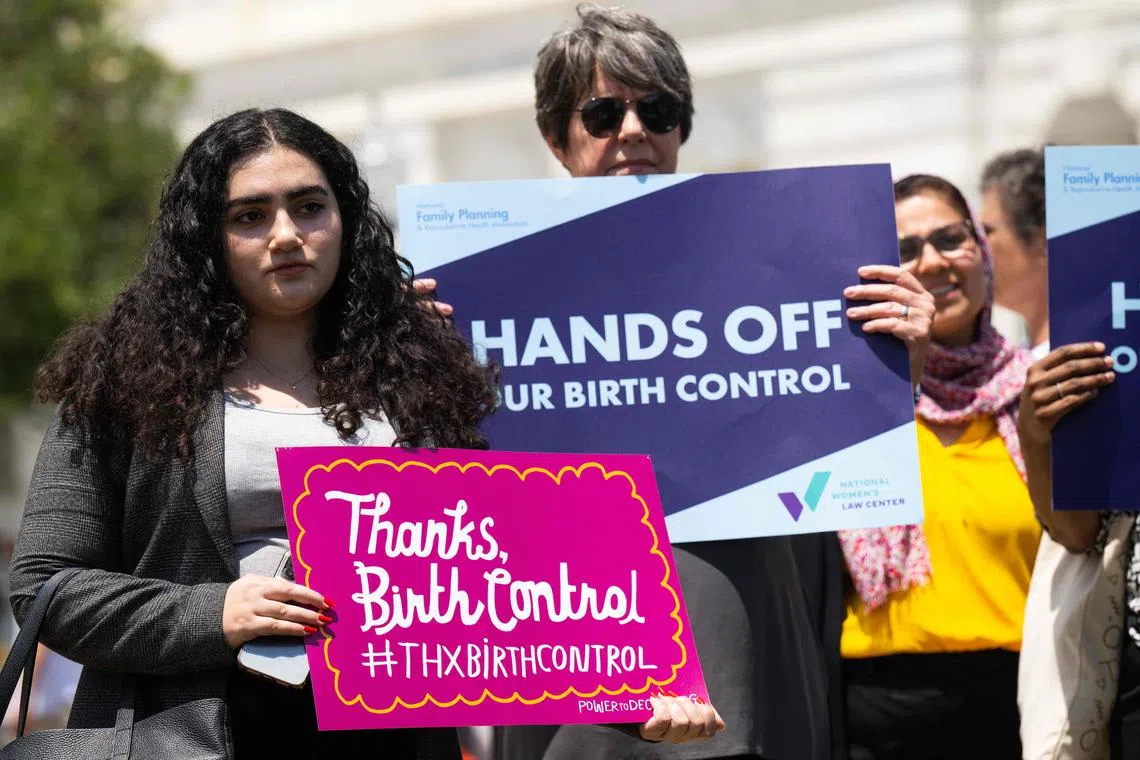FDA approves first over-the-counter birth control pill in US
Sign up now: Get ST's newsletters delivered to your inbox

The approval was expected to reduce barriers for women since the US Supreme Court overturned the constitutional right to terminate pregnancies.
PHOTO: AFP
BENGALURU - The US Food and Drug Administration (FDA) on Thursday approved the first over-the-counter contraceptive pill, paving the way for millions of women in the country to purchase birth control without prescription.
The approval comes as more states ban abortion following a ruling by the Supreme Court in 2022 that overturned the Roe v. Wade decision
The daily contraceptive Opill, sold by Perrigo, was first approved for prescription use in 1973, and the over-the-counter approval allows people to obtain it without first seeing a healthcare provider.
Perrigo will next week share its pricing plan for the pill, which will be available in stores and online in the first quarter of 2024.
“Today marks an important step in the drive toward meaningful access to essential healthcare for Americans,” Health and Human Services Secretary Xavier Becerra said in a statement.
The approval will help women obtain contraceptives without barriers such as the cost and time of a healthcare provider visit, transportation and finding childcare during the appointment.
Opill, also known as a “minipill”, uses progestin, a form of the progesterone hormone which plays a role in the menstrual cycle and pregnancy. It does not contain the hormone estrogen, unlike combination contraceptive drugs.
Women should take a progestin-only pill within the same three hours every day to avoid pregnancy. Combination pills that contain both estrogen and progestin do not have such a limitation.
“I jokingly refer to it as a mini step in the right direction. It does have its drawbacks. If women don’t take it at precisely the same time every day, they have to start all over again (from the next menstrual cycle),” said Dr Jeffrey Singer, a senior fellow at the libertarian think-tank Cato Institute.
The most common side effects of the pill include irregular bleeding, headaches and dizziness. The FDA advises it should not be taken by those who have or have had breast cancer.
The National Catholic Bioethics Centre and other groups have opposed making Opill available without prescription, saying physicians should be involved in health decisions, especially for teenagers, along with parental supervision, to avoid harm.
A panel of the FDA’s advisers had in May voted unanimously in favour of Opill’s over-the-counter sale, with advisers saying more women were likely to be harmed by an unplanned or unwanted pregnancy than the drug’s side effects.
Perrigo gained the daily-use pill through its US$2.13 billion (S$2.8 billion) acquisition of Paris-based HRA Pharma in 2021. REUTERS


